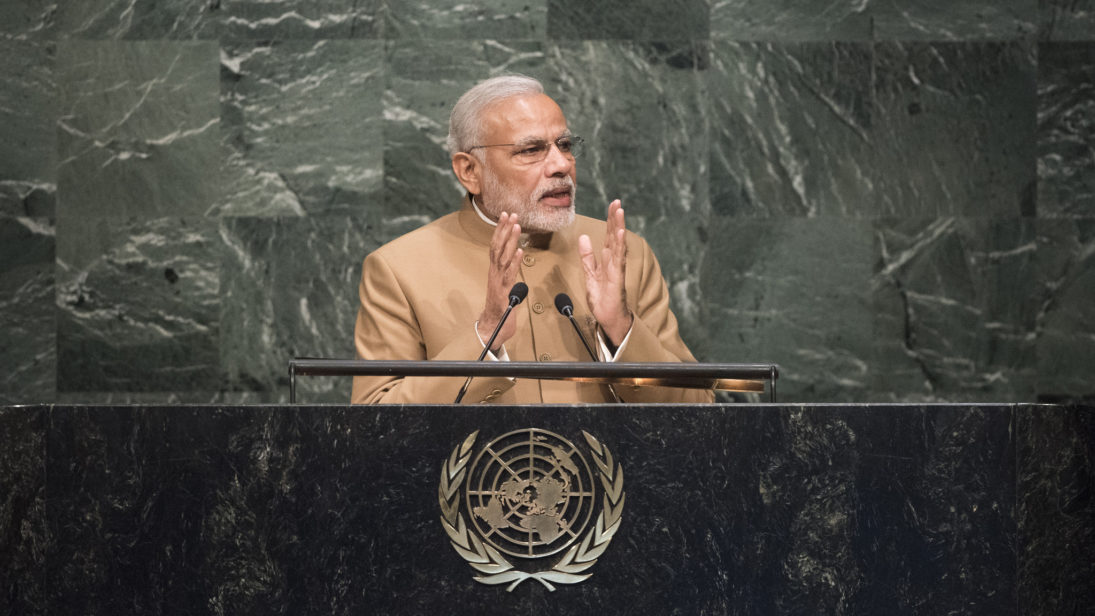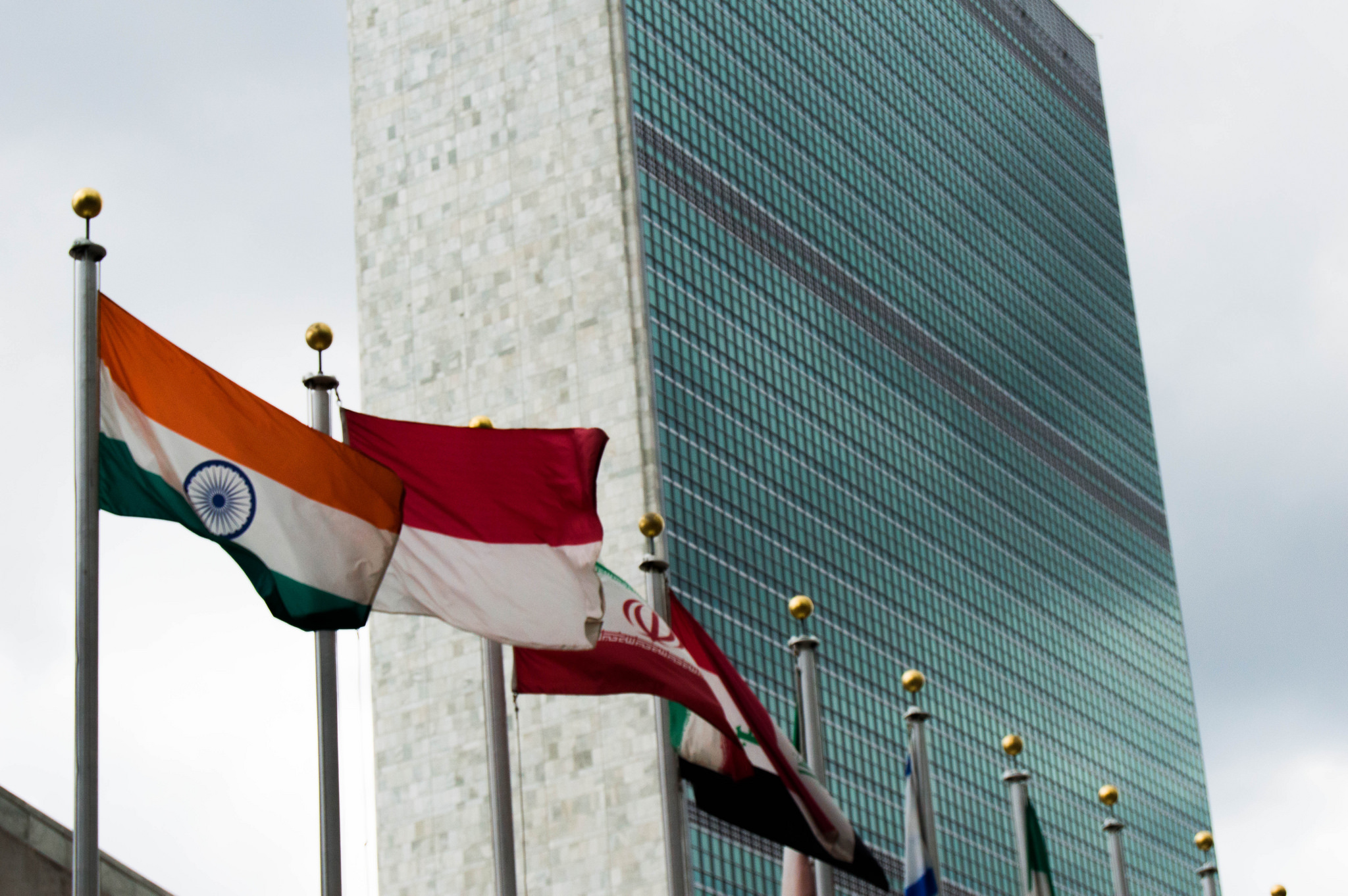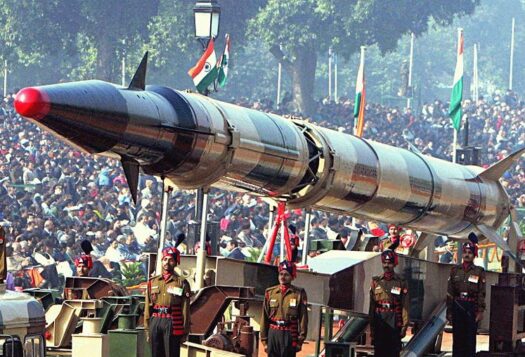
The UN General Assembly recently adopted a resolution calling for the commencement of negotiations in 2017 for a “legally binding instrument” to prohibit nuclear weapons. Overall, 123 countries voted in favour of the resolution and 38 voted against. India, China, and Pakistan were among the 16 countries that abstained. North Korea, surprisingly, voted in favor. All other nuclear weapons states as defined by the Non-proliferation Treaty (NPT) opposed the resolution.
India abstained for several reasons. First, it regards the Conference on Disarmament (CD) as the “sole governing body on disarmament” Nuclear weapons are the weapons of deterrence in the region, and while India supports eventual disarmament and nuclear non-proliferation, it is particularly cautious about the means to this end.
Origin of the Resolution
The UN resolution arose out of UN Secretary-General Ban’s 2008 five point proposal to achieve complete nuclear disarmament. His plan included the negotiation of a nuclear ban convention backed by a system of verification and states’ voluntarily adoption of the “rule of law.” The resolution is Ban’s last attempt to ensure that his plan for a nuclear weapons ban moves ahead before his successor takes his place next year.
The resolution is a sign of many countries’ frustration over the deadlock at the Conference on Disarmament. The CD has failed to reach any decisive consensus on a nuclear ban in past two decades, and Resolution L.41 establishes negotiations that are not under the auspices of the Conference on Disarmament in an attempt to circumvent this deadlock.
Rationale behind India’s Abstention
India’s decision to abstain from the resolution stems from realpolitik, or politics arising out of practical rather than moral or ideological considerations. It sees the CD as the sole body responsible for governing on disarmament issues, and negotiations outside of the CD will be a duplication of this task. India’s formal statement at the First Committee explicitly states that India is not convinced that the proposed conference in 2017, convened under the General Assembly rules of procedure, can address the longstanding expectation of the international community for a comprehensive instrument on nuclear disarmament. For these reasons, it is unlikely that India will participate in negotiations.
Some nuclear weapons states have shied away from signing or ratifying disarmament treaties such as the Comprehensive Nuclear-Test-Ban Treaty (CTBT) and NPT in the past, and their “no” vote on Resolution L.41 demonstrates the continuation of this trend. The oft-repeated reason is the need for regional and national security. In South Asia, India is bordered by hostile, nuclear-capable neighbours and consistently faces the threat of cross-border terrorism, thus it cannot let its nuclear guard down. In this complicated security context, both in South Asia and in the rest of the world, the chances of any nuclear weapons states getting on board with the proposed nuclear weapons ban are bleak.

Dilemma of a “Consensus-Based” Legal Regime
Several countries that abstained from voting strongly demanded that nuclear weapons states show their support for the nuclear ban treaty before moving forward with negotiations. It is evident that a convention banning nuclear weapons cannot succeed without the nuclear weapons states committing to nuclear disarmament first. Under these circumstances, it is unlikely that the proposed convention will move ahead.
Another issue related to nuclear disarmament revolves around the legal punitive measures that are to be taken against countries that fail to comply. This aspect is meant to close the gap in the existing nuclear non-proliferation regime. However, based on other legally binding instruments under the CD, legal punitive measures have proven to be difficult to implement. For example, take the Chemical Weapons Convention, which was signed by a vast majority of countries, including Syria, in 2013. The UN subsequently found that the Syrian Government was guilty of using chemical weapons on its people in 2014 and 2015. It took two years for the UN to hold Syria responsible, and the world is still waiting to see what legal recourse the UN will take. The issue of sovereignty makes punitive measures a difficult task for any international organisation. Furthermore, the delinquents can always find a way around international law.
The difficulty of enforcing a nuclear ban further adds to India’s hesitancy. It is unclear if legal-punitive actions by the UN can be expected if Pakistan were to violate the treaty by continuing to build up its nuclear weapons arsenal. India cannot be expected to give up its nuclear weapons if there is no reliable safeguard against continued proliferation amongst its nuclear rivals. In other words, the execution of punitive actions against proliferating countries is a complex undertaking that must go beyond economic sanctions.
The Way Forward
The adopted Resolution L.41 sets up a negotiating conference to be held from March 27 to 31, 2017 and June 15 to July 7, 2017 at the UN in New York. All UN member states are encouraged to participate.
However, it is unlikely that replacing one body with another will break the deadlock in CD negotiations. Additionally, irrespective of the forum used, the 2017 UN negotiations need to focus on tackling the issues that are preventing countries like India from supporting further negotiations on a nuclear ban. There has to be a sustained effort by international organisations and civil society representatives to build up the required political will for disarmament amongst nuclear weapons states. Second, states with nuclear weapons should be discouraged from supporting rouge states. Until this ends, countries cannot be dissuaded from looking for nuclear solutions to their security concerns. Finally, the international community should strongly urge the US, Russia, and China to restart their talks and create confidence building measures on nuclear disarmament. The adoption of UN Resolution L.41 has won the battle, but winning the war against nuclear weapons will require far more.
Editor’s note: This is the third article in a four-part “Banning the Bomb” series on what a nuclear ban treaty could mean for India and Pakistan. In “Pakistan’s Perspective,” Ahsan Chaudhary argued that Pakistan is taking a wait and see approach to the negotiations. Sadia Tasleem noted in “Pakistan’s Prospects” that Pakistan will likely have a realpolitik approach to a potential nuclear ban treaty. Hina Pandey completes the series with thoughts on where Indian policy may go from here. Read the entire series here.
***
Image 1: Flickr, United Nations Photo
Image 2: Flickr, Erick Irani


